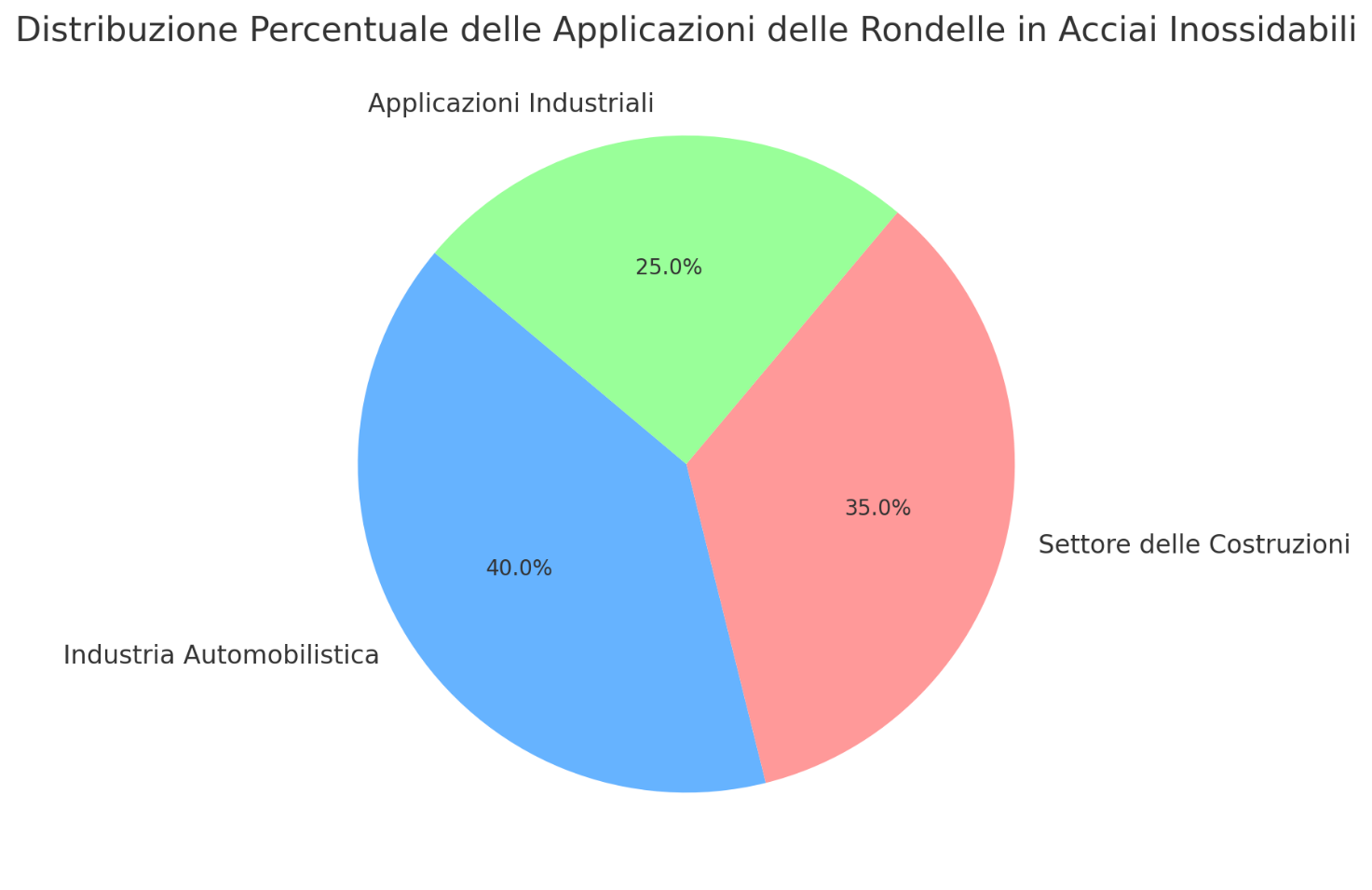Solutions Against Loosening in Stainless Steels: Washers
Introduction
The loosening of threaded fasteners is a common problem in many mechanical applications, especially those exposed to vibrations, shocks, and thermal cycles. In stainless steels, known for their corrosion resistance and durability, preventing loosening is crucial to ensuring the structural integrity and longevity of components. Washers, particularly locking washers and spring washers, are some of the most effective solutions for preventing joints from loosening and improving fastening stability.
Types of Washers and How They Work
Several types of washers are used to prevent threaded fasteners from loosening. These washers work primarily by increasing friction between the nut or bolt head and the mating surface, or by introducing a spring force that counteracts relative movement. Below are the main types of washers used in stainless steel applications:
- Flat Washers
- Description: Flat washers are the simplest and most common type. They distribute the clamping load over a wider area, reducing deformation of the mating surface and improving joint stability.
- Applications: Used in combination with self-locking nuts or other locking washers to improve loosening resistance.
- Split Lock Washers
- Description: Split lock washers, also known as spring washers, have a single helical split that gives them a spring-like quality. When tightened, the washer deforms, creating a spring force that counteracts the loosening of the nut.
- Applications: Ideal for applications subject to vibrations and dynamic loads, such as in the automotive industry and industrial machinery.
- Internal and External Tooth Lock Washers
- Description: These washers have internal or external teeth that bite into the mating surface and the nut or bolt head. The teeth create greater friction, preventing relative movement.
- Applications: Used in applications where extra loosening resistance is needed, such as in structures exposed to heavy vibrations.
- Belleville Washers (Conical Spring Washers)
- Description: Belleville washers are conical disc-shaped washers that act like a spring. They introduce a compression force that increases loosening resistance under varying loads.
- Applications: Used in joints that must withstand heavy loads and stress cycles, such as in aerospace and heavy machinery applications.
Table: Characteristics of Main Washer Types
| Washer Type | Working Mechanism | Typical Applications |
|---|---|---|
| Flat Washer | Load distribution, deformation reduction | General mechanics, automotive, construction |
| Split Lock Washer | Spring force counteracting loosening | Applications with vibrations, automotive, machinery |
| Internal/External Tooth Lock Washer | Increased friction via teeth | Vibrating structures, construction, precision engineering |
| Belleville Washer | Introduction of a compression force | High-stress applications, aerospace, industrial Export to Sheets |
The Use of Washers in Stainless Steels
The use of washers in stainless steel is particularly advantageous due to the material's inherent corrosion resistance, which enhances their effectiveness and durability in critical applications.
- Corrosion Resistance
- Description: Stainless steels are chosen for their excellent anti-corrosion properties, and using washers made from the same material ensures the entire joint resists atmospheric and chemical agents. This is crucial in marine, chemical, and aggressive industrial environments.
- Applications: Stainless steel washers are used in applications where corrosion resistance is essential, such as in bridge construction, chemical plants, and marine equipment.
- Fastening Stability
- Description: Stainless steel washers provide greater fastening stability, especially under dynamic loads and vibrations. The ability to maintain a constant clamp load reduces the need for frequent maintenance, improving the reliability of structures.
- Applications: Used in sectors like the automotive and aerospace industries, where the stability and reliability of threaded fasteners are crucial for safety.
- Compatibility with Self-Locking Nuts
- Description: Washers can be combined with self-locking nuts to offer additional protection against loosening. This combination is particularly useful in critical applications where safety is paramount.
- Applications: The combined use of washers and self-locking nuts is common in high-security applications, such as in industrial plants and construction.
Chart: Distribution of Stainless Steel Washer Applications
The chart shows the percentage distribution of common applications for stainless steel washers across different industrial sectors.
This chart highlights how washers are widely used in the automotive, construction, and industrial sectors, where corrosion resistance and fastening stability are essential.

Advantages and Challenges of Using Stainless Steel Washers
Advantages
- Excellent Corrosion Resistance: Stainless steel washers resist atmospheric and chemical agents, making them ideal for use in harsh environments.
- Fastening Stability: Washers improve fastening stability, preventing threaded fasteners from loosening under vibrations and variable loads.
- Ease of Installation and Maintenance: Washers are easy to install and can be used with other fastening devices to further improve joint security.
Challenges
- Higher Cost: Stainless steel washers can be more expensive than those made from other materials, increasing the initial assembly costs.
- Potential for Surface Damage: Washers with internal or external teeth can damage contact surfaces, especially if not installed correctly, which can reduce the aesthetics and corrosion resistance of the joint.
- Need for Torque Control: The use of split lock and spring washers requires accurate torque control to ensure the effectiveness of the joint.
Commercial Conclusion
The use of stainless steel washers represents an advanced solution for preventing threaded fasteners from loosening in difficult environments and critical applications. While the initial cost may be higher than alternative solutions, the benefits in terms of corrosion resistance, fastening stability, and long-term maintenance cost reduction make washers a strategic choice for high-responsibility sectors.



